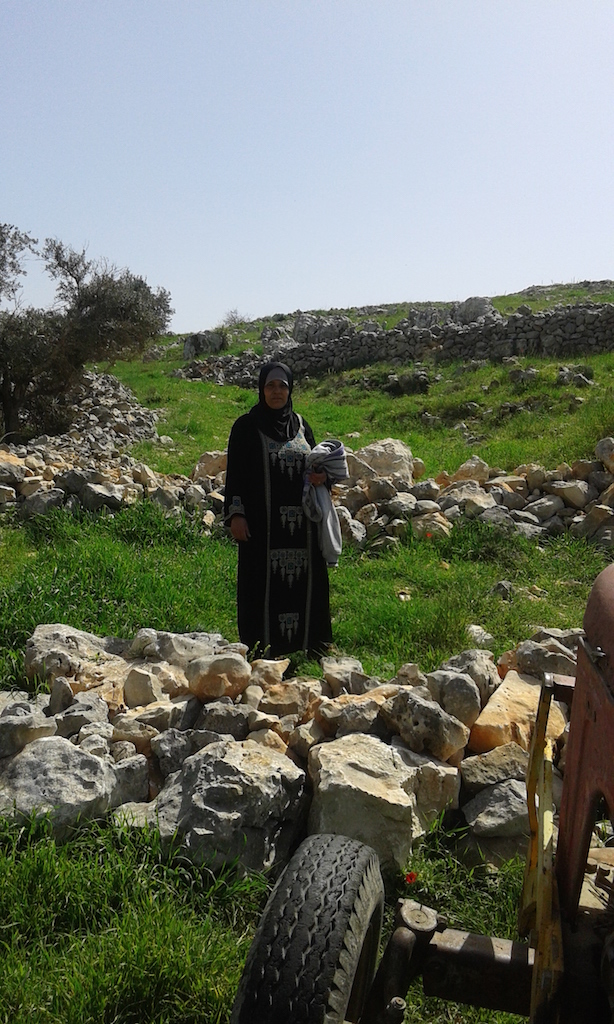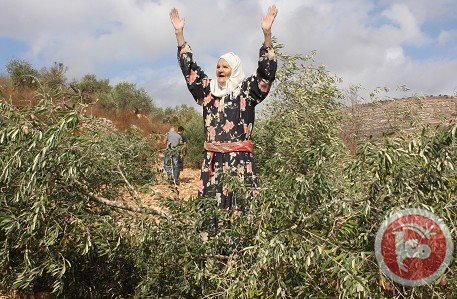Tag: Itamar Settlement
-
Ongoing harassment and restrictions on farmers around Nablus
12th March 2015 | International Solidarity Movement, Nablus Team | Burin, Salim, and Awarta, Occupied Palestine Early spring marks an important time of the year for farmers around Nablus, where critical work must be done to ensure a quality olive harvest in October. In high tension regions, where farmers risk settler attacks while accessing their land, District Coordination Offices…
-
Israeli settlers sabotage the olive harvest in Awarta
23rd September 2014 | International Solidarity Movement | Awarta, Occupied Palestine On the 28th of August, around 7:00 a.m., Israeli settlers from the illegal settlement of Itamar cut down and burnt more than 30 olive trees belonging to Awarta village before the harvest. For the farmers living southeast of Nablus City, the olive trees are a basic,…
-
Settlers attack farmer, kill sheep in Aqraba
2nd August 2013 | International Solidarity Movement, Nablus Team | Aqraba, Occupied Palestine At 530pm on July 30th three settlers from the illegal settlement of Itamar violently attacked a farmer from the village of Aqraba, south east of Nablus. Four farmers from the village had spent the day grazing their more than 500 sheep on…


